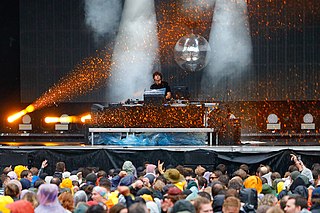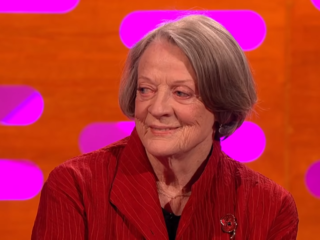A Quote by Jonathan Santlofer
The idea of going to school to be an art critic is a very crazy idea. I educated myself in public, which is a very painful way to learn - by writing and then discovering that I don't know what the f**k I'm talking about. But you remember the lessons vividly.
Related Quotes
During my career as a standup and actor, I realized it was very frustrating for me to get hired because Hollywood was hiring a different kind of brother, you know, and I was doing political humor... In order for me to really have a long career, I'm going to have to learn how to write and produce for myself... I had no idea I was really going to like it and I'm very fortunate to be successful. But the idea was to always eventually create something for myself. That was the idea from the beginning when I went into writing and producing.
First I went to a Jewish school, when I was very little. But when I was 12, they put me in a school with a lot of traditions, and they were educated people and they were talking about Greece and the Parthenon and I don't know what. All the kids, all the girls they had already seen that and knew that from their family, and I would say, "What are you talking about, what's that?" It's not my world. My grandparents were very well-educated people, but in the Jewish tradition. They knew everything about the Bible.
The thing about angel investing, which I get into in the book a lot is, you actually don't have to understand the idea, you don't have to know if the idea is going to win, you just need to know if a founder's going to win in their life. I can just tell by looking at somebody if they'll be successful in their life. I don't even have to have a conversation. I just look at their eyes while they're talking and it becomes very clear to me.
I could draw ideas. I remember writing a paper for a seminar class. I remember writing a paper about - and this is going to sound really sort of pretentious, but that's where my mind was at the time - how acting and the performing artist can really be like a Bodhisattva, how they can communicate ultimately an idea in a way that can move and shift things. And that was wonderful. I didn't know many classes where I could try and relate the thing that I really loved and wanted to do into an intellectual idea, and that happened to be one of them.
I had no idea that that was around in the family anywhere. Maybe it never was. But - so they broke the way for me, if you know what I mean. I have no idea where I got the idea from to do what I do. But I think they - Ian and Alistair, my brothers kind of opened a lot of doors for me onto the world - you know, made it seem to be a very, very interesting place.
I was pretty young. I guess I was in high school, so I was probably 13 years old. It was crazy. I remember it very vividly. I remember - it was actually kind of horrifying, because one of my friends - we smoked out of a bong, and one of my friends - this was so stupid - he didn't want to bring - it was after school on a Friday, and he didn't - we smoked weed in this park called the Ravine that was across the street from my high school.
































